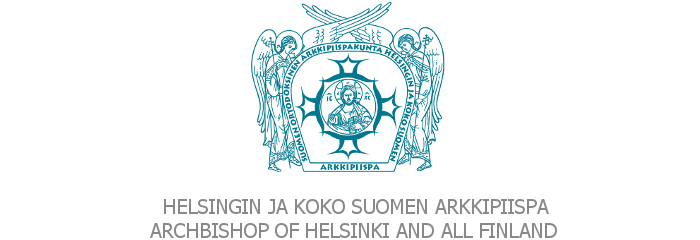Greeting address to Lutheran-Orthodox Joint Commission
Your Eminence, Metropolitan Gennadios of Sassima, Most Reverend Archbishop Anders Wejryd, Reverend Fathers and Sisters.
On behalf of the Orthodox Church of Finland I would like to warmly welcome you all to our country celebrating this year the centenary of it's independence.
We are delighted to have you here in Helsinki to share your experience on the topic ”Legacy of the Reformation – Lutheran and Orthodox approaches”.
Let me present you some modest thoughts toward a historical consciousness of this topic.
Why our approaches are usually different? Why they persist, and what can be done to bridge them?
In historical retrospect we usually start analyzing modern orthodoxy from year 1453. It is not an irrelevant point de depart, but as the year 1517, the start of the Protestant Reformation, both years are only historical marks of long development and starting points for perpetual theological transitions.
Patriarch Jeremias II, Manuel of Corinth and Meletios Pigas as well as Martin Luther, Philipp Melanchthon and Friedrich Myconius were witnesses of the new world order: the shift in power from Orient to the north-western Europe.
The 20th century witnessed a new phenomenon. Orthodox in large number emigrated from their native lands in Western Europe, North and South America.
At the same time theologians began not only to translate the classical works into English, French, German or Spanish, but also began to write in these languages.
This was the moment when the ecumenical movement gained in dialogue, and allowed the fruits for the bilateral Lutheran-Orthodox –reflections.
Eminences, Most Reverend Brothers and Sisters in Christ.
It is of the utmost importance that ecumenical and interfaith dialogue strengthens.
The late twentieth and early twenty-first centuries have represented something of a disaster for the western world, Europe and United States.
What has been striking is the west’s lack of perspective about global history.
Are we moving into an era where the intellectual or political dominance of the west is returning to the Silk Road’s East?
This is a historically based hypothesis of Oxford Scholar Peter Frankopan, who translated recently The Alexiad by Anna Komnene.
An openness towards greater universalism began with two encyclicals by the Ecumenical Patriarch in 1902 and 1920.
It is in this spirit I wish you all to develop new insights in Lutheran and Orthodox –dialogue.
Praying for the work of the commission abundant blessing from God the highest.
Greeting address of Archbishop Leo of Karelia and All Finland to Lutheran-Orthodox Joint Commission in Helsinki, November 13th 2017




